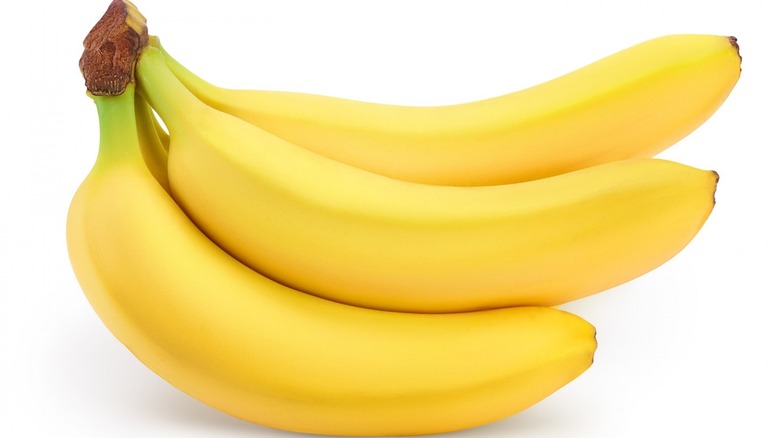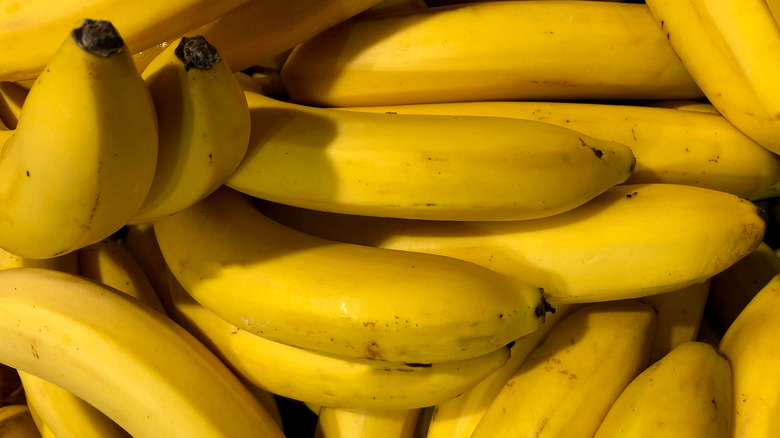The Strange Connection Between Bananas And Antimatter
An iconic and immediately recognizable food, bananas are widely well known for their potassium content, the delicious baked goods they produce, and for their convenience when it comes to eating — there's practically nothing easier to grab on the way out the door. Something that is much less well known is the study of antimatter. Interestingly enough, though, there is quite an overlap between the two.
Symmetry Magazine delves into the significance of bananas and potassium within science, nothing that "the average banana produces a particle of antimatter roughly once every 75 minutes." What does this mean? Essentially, a single banana creates a "positron" naturally, over and over throughout the day and/or the course of its "life." Symmetry notes that this is due to the amount of potassium-40 within a single banana.
What is antimatter, you ask? As defined by Live Science, it is "the same as ordinary matter except that it has the opposite electric charge." Antimatter is known for being relatively rare, so knowing that bananas are produce antimatter at such a consistent rate is a fascinating observation that many scientists have studied. The Conversation notes that "when a particle and its antiparticle meet, they annihilate each other — disappearing in a burst of light." Obviously, this is very unusual, and this reaction can help to produce amazing breakthroughs. An important fact about antimatter is that it is studied extensively for use in medications and healthcare. There's still much research and experimentation to be done, but knowing that the humble banana might figure into helping to solve such a complex, enormous scientific quandary is beyond fascinating!
More about bananas and antimatter
Phys.org says that antimatter is super uncommon, and noets that some of the ideas for technologies and medical developments that could arise due to antimatter studies verge on science fiction. However, they are plausible! PET — or positron emission tomography — is a medical technique that is incredibly powerful and is also used within PET scans. When it comes to the medical industry, there is almost endless potential with regard to antimatter, which makes the fact that bananas so regularly produce it to be an amazing find.
To be more specific about potassium specifically, EatingWell notes that the average banana boasts about 420mg of potassium, which is around 12% DV. Beyond antimatter, potassium is an important mineral that promotes heart health and healthy blood pressure, as well as weight loss, satiety, and gut health. Insider also notes that potassium promotes bone and muscle health, while Eat Right states that potassium also helps to promote muscle strength and contraction, regulated cell health, and diminishes the risk of kidney stones. Other major sources of potassium are baked potatoes, spinach, raisins, broccoli, cantaloupe, lentils, and many other foods — but bananas are still the primary "face" of the mineral.
It's certainly a bit lofty of a topic that is somewhat tricky to comprehend, but sourcing antimatter or positrons from the naturally occurring potassium-40 in bananas could have a major influence on the scientific and healthcare communities, perhaps even helping to develop incredibly important breakthroughs in those fields — and possibly saving lives.

